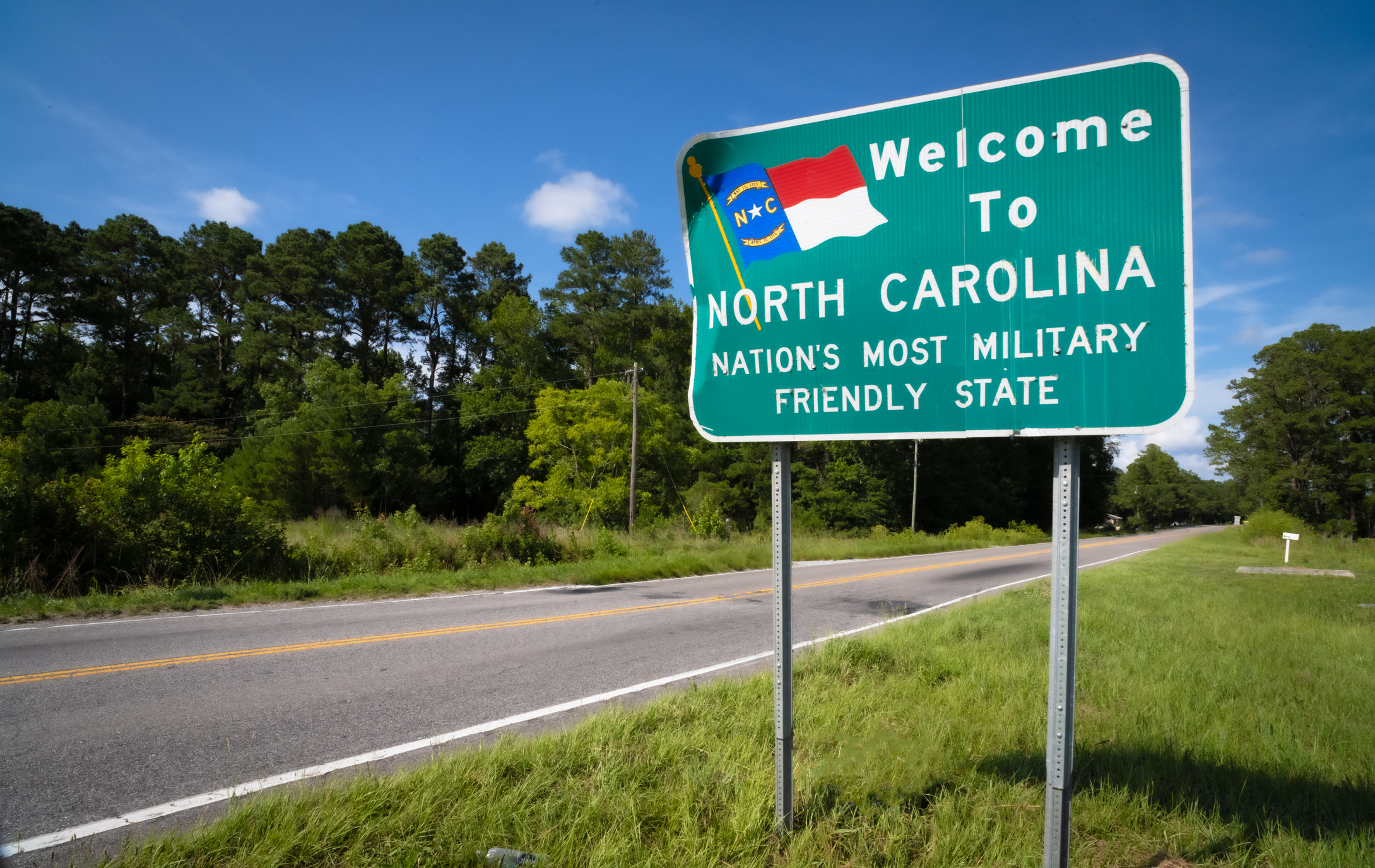Understanding Camp Lejeune and VA Benefits
One of the worst instances of water contamination in American history occurred at Camp Lejeune, a Marine Corps base in North Carolina. The drinking water of thousands of military soldiers and their families was contaminated from 1953 to 1987 with dangerous substances like trichloroethylene (TCE) and perchloroethylene (PCE), which are often used as solvents and degreasers. Cancers, neurological illnesses and reproductive problems have all been linked to these substances’ adverse effects on health.
This article aims to inform and educate veterans and their families who served at Camp Lejeune during the contamination period about the incident, its consequences on their health, and their choices for the recovery. We will also discuss how working with a veteran’s lawyer won’t impact claimant’s eligibility for or entitlement to VA benefits.
The Dark History of Camp Lejeune
Early in the 1950s, the infamous Camp Lejeune water contamination began and persisted until 1985, when the worst-affected wells were shut down. Volatile organic compounds (VOCs) from various sources such as a dry-cleaning business, industrial operations, storage tanks and trash dumps, contaminated the water. Hadnot Point, Tarawa Terrace and Holcomb Boulevard were among the base’s various contaminated locations. Thousands of military personnel and their families who resided or worked there used the contaminated water for drinking, cooking, bathing and other activities.
When a water sample from a fire hydrant at Hadnot Point revealed high levels of TCE in 1980, the pollution was unintentionally found. However, until several years later, military authorities failed to alert the public or implement practical solutions to the issue. They fought outside inspections and oversight and attempted to minimize or conceal the scope and severity of the contamination. Camp Lejeune wasn’t added to the EPA’s National Priorities List of Superfund sites until 1989.
Since then, numerous scientific research and examinations have been carried out to evaluate the dangers and effects of pollution on human health. Since 1991, the Agency for Toxic Substances and Disease Registry (ATSDR), a federal public health organization, has directed the research initiatives. ATSDR has carried out epidemiological studies, health surveys, exposure assessments and a toxicological analysis to establish a connection between contaminated water and numerous illnesses and disorders. Some of the conclusions are as follows:
- An increased risk of leukemia and non-Hodgkin’s lymphoma among children born to mothers exposed to contaminated water during pregnancy.
- An increased risk of kidney cancer, liver cancer, bladder cancer, multiple myeloma, non-Hodgkin’s lymphoma, Parkinson’s disease, and aplastic anemia among veterans who were exposed to the contaminated water.
- An increased risk of breast cancer among men exposed to contaminated water.
- An increased risk of adverse birth outcomes, such as neural tube defects and oral clefts, among women exposed to contaminated water during pregnancy.
Other agencies and organizations that have been involved in the research or oversight of the contamination include the Centers for Disease Control and Prevention (CDC), the National Research Council (NRC), the Department of Veterans Affairs (VA) and the Institute of Medicine (IOM).
Recovery Options for Camp Lejeune Exposure
If a veteran or their family member were exposed to the contaminated water at Camp Lejeune, they may be eligible for various benefits and services from the Department of Veterans Affairs (VA). Below are some examples of the available recovery opportunities.
Disability Compensation
Disability compensation is a monthly payment that Veterans may receive if they have a disability that is related to their military service. Suppose the individual served at Camp Lejeune or MCAS New River for at least 30 days between August 1, 1953 and December 31, 1987, and are diagnosed with one or more of the eight presumptive conditions listed in the Camp Lejeune Act of 2012. In this case, the Veteran can presumptively apply for disability compensation. This means that they do not need to prove that the exposure caused their condition but only that these individuals meet the service and diagnosis criteria. The eight presumptive conditions are:
- Adult leukemia
- Aplastic anemia and other myelodysplastic syndromes
- Bladder cancer
- Kidney cancer
- Liver cancer
- Multiple myeloma
- Non-Hodgkin’s lymphoma
- Parkinson’s disease
To apply for disability compensation, the impacted veteran must fill out an application form (VA Form 21-526EZ) and submit it online, by mail, or in person. The claimant must also provide evidence of their service at Camp Lejeune or MCAS New River, such as their DD214 or other service records and proof of their diagnosis of one or more presumptive conditions, such as medical records or doctor’s statements.
Health Care
This comprehensive healthcare program covers preventive care, primary care, specialty care, mental health care, emergency care and prescription. Suppose a Veteran served at Camp Lejeune or MCAS New River for at least 30 days between August 1, 1953 and December 31, 1987. In that case, these individuals can enroll in VA health care and receive medical services for the 15 conditions listed in the Camp Lejeune Act of 2012 at no cost (including copayments). These conditions are:
- Bladder cancer
- Breast cancer
- Esophageal cancer
- Female infertility
- Hepatic steatosis
- Kidney cancer
- Leukemia
- Lung cancer
- Miscarriage
- Multiple myeloma
- Myelodysplastic syndromes
- Neurobehavioral effects
- Non-Hodgkin’s lymphoma
- Renal toxicity
- Scleroderma
To enroll in VA health care, impacted Veterans must fill out an application form (VA Form 10-10EZ) and submit it online, by phone, by mail, or in person. They must also provide proof of their service at Camp Lejeune or MCAS New River, such as their DD214 or other service records.
Reimbursement of Medical Expenses
The medical care reimbursement program allows Veterans to get reimbursed for out-of-pocket medical expenses they paid for the treatment of any of the 15 conditions listed in the Camp Lejeune Act of 2012. This applies to the costs incurred on or after March 26, 2013. These claimants may be reimbursed for copayments, deductibles, coinsurance and travel costs. To be eligible for reimbursement, individuals must be a veteran’s family member who served at Camp Lejeune or MCAS New River for at least 30 days between August 1, 1953 and December 31, 1987. A family member is defined as a spouse (including a widow or widower), a child (including an adopted child or a stepchild), or a dependent parent. These individuals must also have one or more of the 15 conditions listed in the Camp Lejeune Act of 2012.
Camp Lejeune Family Member Program
To apply for reimbursement of medical expenses, these claimants will need to fill out an application form for the Camp Lejeune Family Member Program (VA Form CLFMP-1) and submit it online or by mail. Individuals also need to provide proof of their relationship to the veteran who served at Camp Lejeune or MCAS New River such as a marriage certificate, a birth certificate, or an adoption decree; proof of their diagnosis of one or more of the listed health conditions.
Survivor Benefits
The Survivors Assistance program provides monthly payments to eligible surviving spouses, children and dependent parents of veterans who passed away from a service-related disability or who had a service-connected disability rating of 100% at the time of death. Suppose a loved one served at Camp Lejeune or MCAS New River for at least 30 days between August 1, 1953 and December 31, 1987, and passed away from one or more of the eight presumptive conditions listed in the Camp Lejeune Act of 2012. In this case, these individuals can apply for survivor benefits presumptively. This means that they do not need to prove that the exposure caused the condition but only that their loved one met the service and diagnosis criteria. The eight presumptive conditions are:
- Adult leukemia
- Aplastic anemia and other myelodysplastic syndromes
- Bladder cancer
- Kidney cancer
- Liver cancer
- Multiple myeloma
- Non-Hodgkin’s lymphoma
- Parkinson’s disease
To apply for survivor benefits, claimants must fill out an application form (VA Form 21P-534EZ) and submit it online, by mail, or in person. Such individuals will also need to provide proof of their relationship to the veteran who served at Camp Lejeune or MCAS New River such as a marriage certificate, a birth certificate, or an adoption decree and proof of the loved one’s service at Camp Lejeune or MCAS New River such as their DD214 or other service records. Additionally, these claimants will need to provide evidence of their death and cause of death, such as a death certificate or a medical report.
These are some of the benefits and services available to veterans and their family members exposed to the contaminated water at Camp Lejeune. However, individuals may also have other options for recovery such as filing a lawsuit against the parties responsible for the contamination. The following section will explain how a veteran’s attorney can help with this process and why claimants and Veterans should not worry about losing their VA benefits or eligibility.
Veterans Attorney
In addition to the benefits and services provided by the VA, claimants may also have the option of filing a lawsuit against the parties responsible for the water contamination at Camp Lejeune. A case can help individuals seek compensation for their injuries and losses such as medical bills, lost wages, pain and suffering, as well as wrongful death.
While this opportunity is available and permitted, filing a lawsuit against the government or military can be difficult. To help pursue the matter, it would help to overcome various legal hurdles and challenges such as sovereign immunity, statutes of limitations and evidentiary standards. These claimants also need to prove that their condition was caused by exposure to contaminated water, which may require expert testimony and scientific data.
Reasons like this are why these individuals are strongly recommended to gain the support of a veteran’s attorney with experience and knowledge in handling Camp Lejeune water contamination cases. A veteran’s attorney can help claimants with the following:
- Evaluating their case and determining eligibility for filing a lawsuit
- Gathering and preserving evidence to support their claim
- Negotiating with the government or other defendants to reach a fair settlement
- Representing claimants in court if a trial is necessary
- Protecting Veteran rights and interests throughout the process
Will bringing a lawsuit affect VA benefits?
The answer is no. Applying for VA benefits or services is different from filing a lawsuit. If individuals choose to file a lawsuit or not, the VA won’t affect these individuals’ benefits or eligibility in any way. There are no adverse effects from pursuing both alternatives at once.
Claimants are recommended to take swift action if they intend to claim on their exposure to the Camp Lejeune water contamination. A two-year window closes on August 10, 2024, under the Camp Lejeune Justice Act of 2022. This permits individuals to file a lawsuit on a presumption basis. Such eligibility to file a case beyond then is unlikely.
Questions on your Camp Lejeune claim?
We can help – (855) 559-1225
At JT Legal Group, our 30+ years of combined experience allows us to diligently achieve settlements for our deserving clients. Our office is so confident we can win the best possible result for our clients, that we work on a contingency basis. This means we don’t get paid until we settle our client’s matter. Contact our team today for immediate support.
Your victory starts here.
Click to call us now!
[NOTE:] Attorney Advertising: Nothing posted on this blog is intended, nor should be construed, as legal advice. Blog postings and hosted comments are available for general educational purposes only and should not be used to assess a specific legal situation. Nor does any comment on a blog post create an attorney-client relationship. The presence of hyperlinks to other third-party websites does not imply that the firm endorses those websites, their contents, or the activities or views of their owners.
Media Contact: Jesamine De Leon
[email protected]
(855) 559-1225



